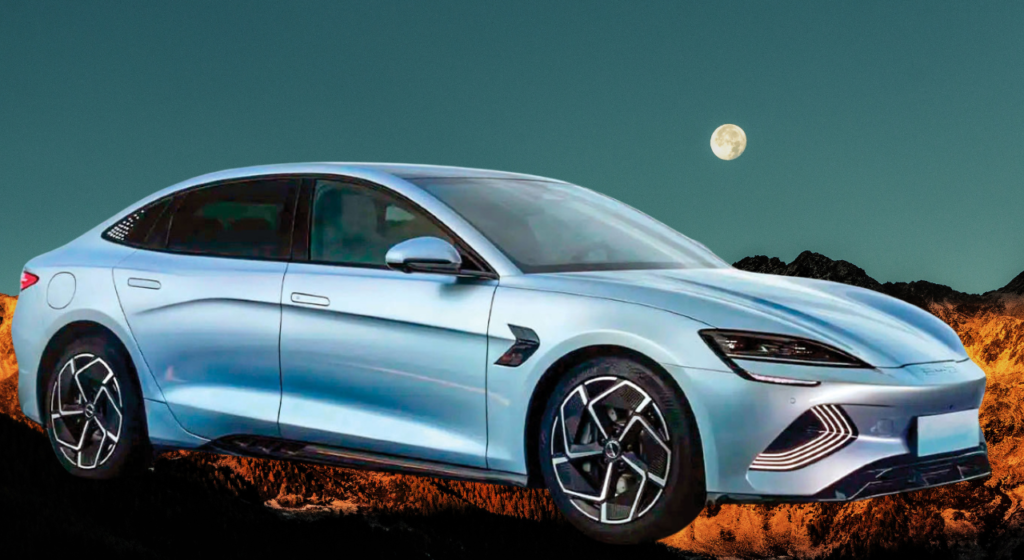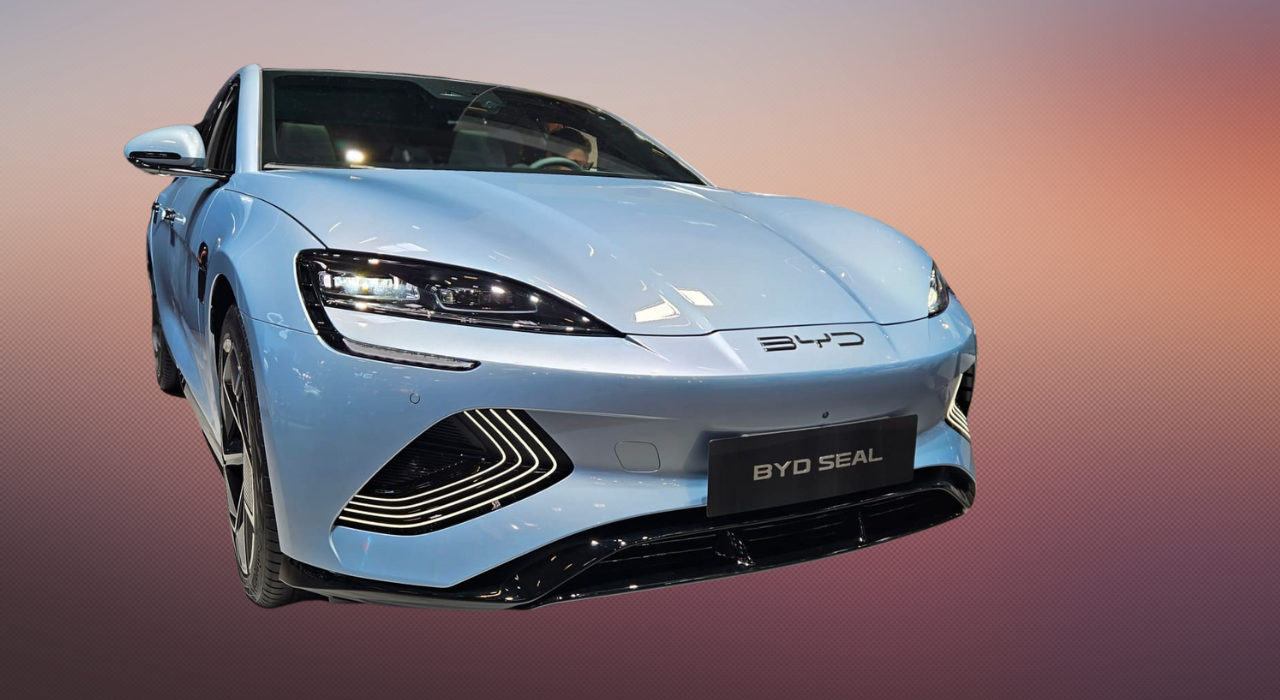Chinese automaker BYD has exciting plans on the horizon, revealing their intent to build an electric vehicle manufacturing plant in Hungary. The announcement comes on the heels of a substantial multibillion-euro investment secured from the Hungarian government. According to BYD’s statement via the Chinese social media app WeChat, the new facility is set to grace the Hungarian city of Szeged, promising to unfold in multiple phases and generate thousands of job opportunities. The construction timeline is earmarked for completion within a span of two years. This move underscores BYD’s commitment to advancing the electric vehicle landscape while contributing significantly to Hungary’s economic development.
BYD is strategically expanding its footprint in Europe, unveiling plans not only for an electric vehicle manufacturing plant in Szeged but also for a battery assembly plant in Fót, a northern Hungarian town. This dual initiative is part of BYD’s broader European expansion strategy. Michael Shu, BYD’s European CEO, shared the company’s ambitious vision earlier this year, aiming to capture up to 10% of all electric vehicle sales in Europe by the year 2030. These moves underscore BYD’s commitment to playing a significant role in the evolving landscape of electric mobility across the European continent.
The upcoming plant is set to be equipped with state-of-the-art process equipment and advanced automation, positioning it as a cutting-edge manufacturing hub for New Energy Vehicles (NEVs). In BYD’s vision, NEVs encompass both battery-electric vehicles (BEVs) and plug-in hybrid electric vehicles (PHEVs). This underscores BYD’s commitment to deploying the latest technologies and highly efficient production processes, solidifying its position at the forefront of the electric vehicle manufacturing landscape.

BYD Commences Electric Bus Production in Hungary
In addition to being a calculated business decision, BYD’s decision to locate an electric vehicle manufacturing facility in Europe is a safeguard against possible import tariffs on Chinese electric vehicles within the European Union. The EU is responding to concerns raised by established European automakers who argue that Chinese EV subsidies are giving Chinese manufacturers a pricing advantage, undercutting competitors in the market. BYD’s move positions them strategically to navigate potential tariff challenges while actively participating in and contributing to the evolving European electric vehicle landscape.
The decision to construct the plant comes with a dual advantage for BYD. Firstly, it enables the automaker to sidestep EU “rules of origin” tariffs, a significant benefit in the current trade landscape. Additionally, it provides a strategic response to France’s recent measures penalizing imports from countries heavily reliant on fossil fuel energy in their manufacturing processes. Hungary, much like France, relies heavily on energy produced by zero-emission nuclear plants. This positions BYD favorably, aligning with sustainability practices and mitigating potential tariff challenges, ensuring a smoother path for their European operations.
BYD’s upcoming plant in Hungary is a groundbreaking move as it signifies the first major car factory in Europe established by a Chinese car brand. While other Chinese automakers like MG’s parent company SAIC and Great Wall are also considering European production bases, details of their plans are yet to be disclosed. Hungary’s active participation in China’s “Belt and Road” initiative has made it an attractive destination for various vehicle and battery factories, with BYD becoming a significant player in this evolving trend. This venture underlines the global reach and influence of Chinese automakers in the European automotive landscape.
Hungary is becoming a hub for key players in the automotive industry. BMW is making strides with the construction of a plant in Debrecen, dedicated to manufacturing its highly anticipated range of electric Neue Klasse models. Simultaneously, Chinese battery manufacturer CATL has declared its intention to build a substantial 100-Gigawatt-hour plant in the same region. Adding to this automotive momentum, Chinese automaker Nio has set up shop in Biatorbagy near Budapest, focusing on the production of battery swap stations. Hungary’s automotive landscape is indeed witnessing a dynamic transformation, showcasing a collaborative effort between international giants.
BYD, China’s foremost maker of New Energy Vehicles (NEVs), showcased an impressive performance in November with a total of 301,903 NEV sales, including a substantial 30,629 units sold in markets beyond China. This year has seen BYD establish a robust presence with 230 retail outlets spread across 19 European countries. The automaker’s portfolio has expanded significantly, introducing five new models across various segments from C to E, featuring hatchbacks, sedans, and SUVs—namely, Han, Tang, Atto 3, Seal, and Dolphin. Excitingly, BYD has ambitious plans, aiming to unveil three new models within the coming 12 months, further solidifying its position in the global electric vehicle market.
BYD’s Triple Entry into the Hungarian Market in 2022
BYD celebrated a significant milestone with a launch ceremony in Budapest on October 17, marking the commencement of sales for three all-electric models—Atto 3, Dolphin, and Seal—through local dealers. Embracing a conventional dealership network for expansion, BYD partnered with two local dealers, Duna Autó and Wallis Motor, and also unveiled two brand stores in Budapest on October 19.
BYD’s venture into Europe was initiated in 2022 at the Paris Motor Show, and since then, the automaker has made impressive strides, penetrating markets in 19 European countries. Hungary stands out as the first Eastern European country where BYD introduced passenger EV sales.
Hungary holds a special place in BYD’s journey, as it’s not their first foray into the country. In 2017, BYD established its initial plant for electric vehicle production in Komárom, situated in the north of Hungary near the border with Slovakia. This facility, which focuses on the manufacture of electric buses and other battery products, is essential to research and development. BYD’s dedication to Hungary is a reflection of its shared history as well as its forward-thinking strategy to improve the electric mobility environment in the area.
The moment was significant to BYD Europe CEO Michael Shu, who said, “It is particularly meaningful for us that our electric cars are now officially accessible in Hungary.” He highlighted BYD’s long history in Hungary, pointing to the company’s vast experience from the established Komárom plant and the BYD eBus business.
Hungary has become a hotspot for Chinese electric vehicle and battery manufacturers, further evident with Nio’s battery swap station factory near Budapest. Additionally, CATL is making a substantial investment of 7.6 billion USD to construct a massive 100 GWh battery plant.In July, Sunwoda, an additional Chinese battery manufacturer, joined the league and declared its intention to establish a factory in Hungary, enhancing the nation’s attractiveness in the electric mobility industry. The gathering of major players in the industry highlights Hungary’s increasing significance in the global electric vehicle market.
The BYD lineup in Hungary offers a variety of compelling electric vehicles, catering to different preferences and needs. The Atto 3, kicking off at 13,997,900 forints (38,400 USD) for the Comfort version, boasts a 60.48 kW LFP Blade battery, a 150 kW motor, and an impressive WLTP range of 420 km, with a claimed consumption of 15.6 kWh/km.
For those opting for the Dolphin, prices begin at 10,978,900 forints (30,100 USD). This model features a 44.9 kWh battery, delivering a WLTP range of 427 km, coupled with a 70 kW electric motor. The Dolphin also offers more robust versions with 130 kW and 150 kW motors, along with a 60.49 kW battery. The top-tier Dolphin trim level is priced at around 13.5 million forints.
Stepping into the sportier segment, BYD introduces the Seal, positioned as a competitor to the Model 3. This all-wheel-drive powerhouse boasts a 390 kW motor, 670 Nm peak torque, and an 82.5 kWh battery, providing an impressive WLTP range of 570 km. Accelerating from 0 to 100 km/h in just 3.8 seconds, the top-tier Seal trim level is priced at 19,212,900 forints (52,800 USD). The diverse range of offerings reflects BYD’s commitment to providing options that cater to varying tastes and driving preferences in the Hungarian market.
